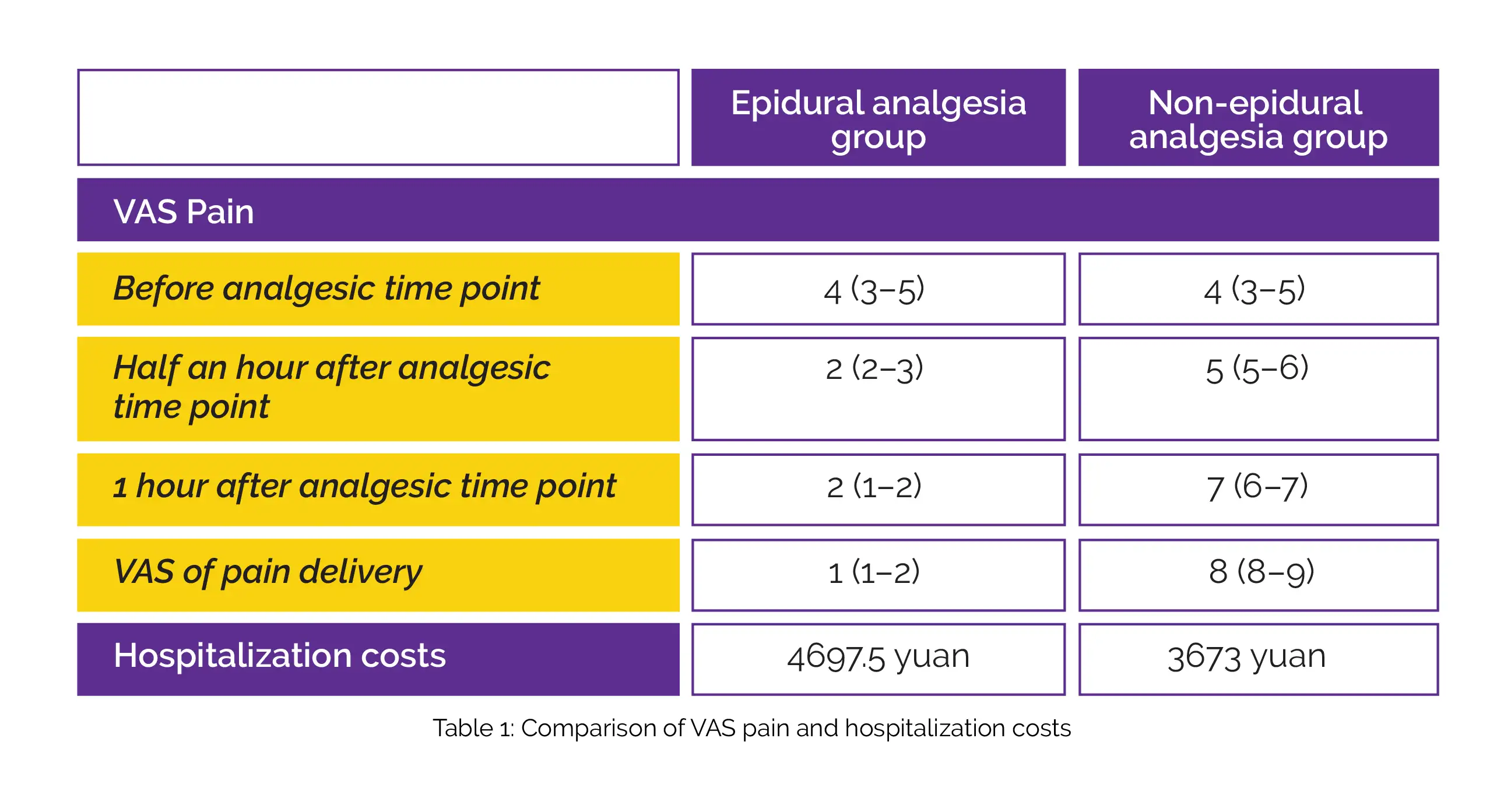Categories
Change Password!
Reset Password!


Epidural analgesia is safe and can significantly alleviate second-trimester labor pain.
According to a prospective, non-randomized, single-center, controlled trial, parturients who received epidural analgesia showed a substantial reduction in their pain score on the visual analogue scale (VAS), demonstrating the efficacy of epidural analgesia in reducing labor pain.
This study was done to check if epidural analgesia was feasible for management of labor pain in the second trimester.
Primiparas who intended to have induced labor in the second trimester were chosen. Ethacridine lactate was introduced into amniotic cavity and Mifepristone was administered orally. Depending on whether they got epidural analgesia, patients were separated into the epidural analgesia group (30 cases) and the non-epidural analgesia (30 cases) group. The major endpoints were the follow-up results and the pain score on VAS. The secondary endpoints were the duration of labor and relative clinical parameters.
Both groups exhibited a successful vaginal induction of labor. Prior to analgesia, there was no clinically meaningful difference in the VAS of pain between both groups. However, during delivery or after analgesia, the VAS of pain in the group receiving epidural analgesia was substantially lower than that of the non-epidural analgesia group. The difference between the median hospitalization expenditures for the study groups was clinically meaningful (Table 1).

Placenta residue, hospitalization days, antibiotic therapy days, C-reactive protein, second days hemoglobin, intrapartum injury, hemorrhage ≥ 500 mL, postpartum hemorrhage, and duration of labor did not statistically vary between both groups. Only three subjects experienced mild lumbago and back pain post-follow-up to 3 months postpartum, which was profoundly reduced by getting enough rest.
There were no adverse events due to epidural analgesia during the hospitalization. Hence, epidural analgesia appears to be promising in the treatment of labor pain in expectant mothers in the second trimester.
Medicine (Baltimore)
Evaluation efficacy and safety of epidural analgesia in second-trimester induced labor: A single-center, prospective, non-randomized, controlled study
Yong Zeng et al.
Comments (0)